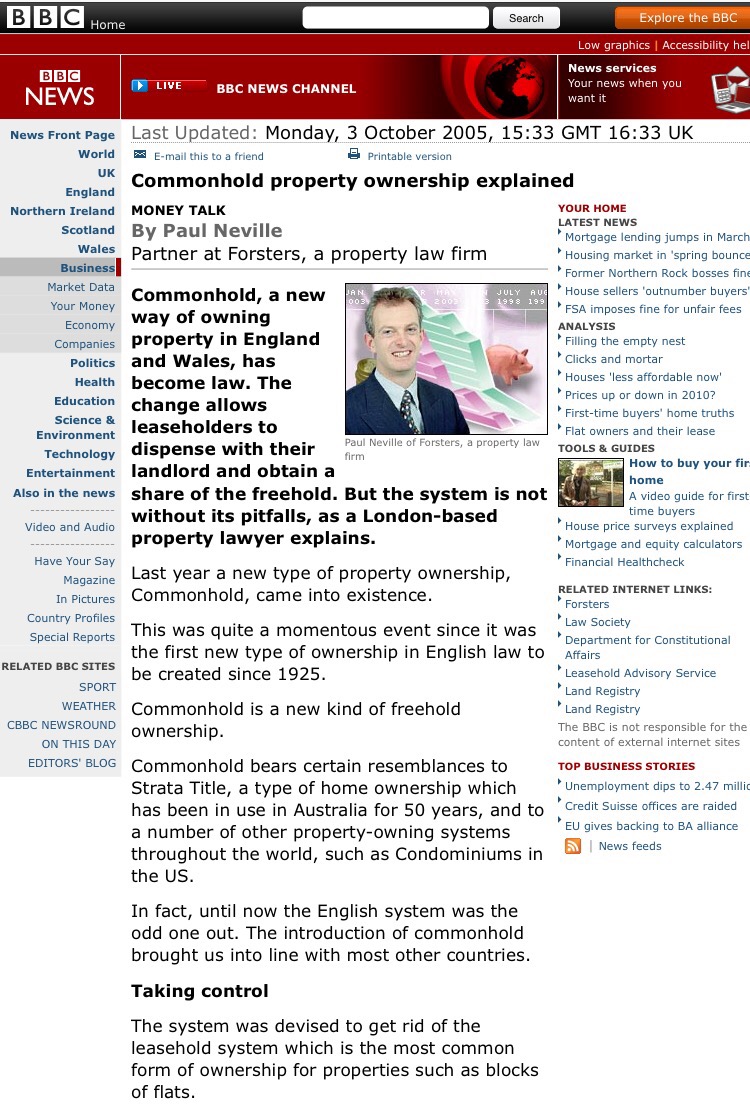Oldham v Tanna – Service on the registered proprietor’s address at the land registry – Is this good service?
Oldham Metropolitan Borough Council v Tanna [2017] EWCA Civ 50
This is a planning case, but it may well be of interest to those dealing with the service of notices.
Ordinarily the address for service, certainly, for 1993 Act matters, is the address shown on the service charge or ground rent demand in accordance with sections 47 and 48 of the Landlord and Tenant Act 1987.
Different considerations apply if the landlord is ‘missing.’
However what Tanna seems to be saying is that, (for planning cases certainly) that service on the registered proprietor’s address as shown at the land registry will be sufficient.
It can only be a matter of time before the point is taken in a leasehold reform case.
For full details of the case see http://www.bailii.org/ew/cases/EWCA/Civ/2017/50.html
The Facts
The case concerned the service of a notice under section 215 of the Town and Country Planning Act 1990 (‘TCPA’) on a Mr Tanna.
Mr Tanna was the registered proprietor of a run down and derelict former nursing home. The local authority wished to serve notice on the basis that the amenity of their area was adversely affected by the condition of the property. This would then pave the way for the local authority to demolish the property and reclaim the cost from Mr Tanna.
Legal Background
The legal issues related to the service of notice under section 215 of the TCPA. Service may be effected at a person’s ‘last known address’ (section 233(2) of the Local Government Act 1972, or ‘by leaving it at the last known place of abode of that person, or where a service address has been given by that person at that address’ (section 329(1)(b) of the TCPA.
The Issue
In this case the local authority served notice on Mr Tanna by serving the address shown in the proprietorship register at the land registry. The local authority also served other addresses, although Mr Tanna sought to argue that he was not resident at the address that had been served. Accordingly, the court had to determine whether service had been effected by serving on the address shown in the proprietorship register.
The Law
At first instance in the county court the judge had found that service had not been effected properly and that the council’s officer should have taken further steps including contacting all council departments and emailing Mr Tanna to seek confirmation of an address for him.
The Court of Appeal rejected this suggestion and reviewed the provisions relating to the address for service that appear in the proprietorship (ownership) register at the land registry.
The previous provisions were contained in rule 315(1) of the Land Registration Rules 1925, the relevant provisions are now contained in Rule 8 of the Land Registration Rules 2003 (‘LRR 2003’). These provide that the proprietorship register must contain an address for service.
Rule 198 of the LRR 2003 states that anyone who will be a registered proprietor must give an address for service ‘to which all notices and communications’ may be sent. The requirement is also to give ‘an address for service which is a postal address, whether or not in the United Kingdom.’
The Decision
The Court of Appeal allowed the appeal by the local authority. It did so because in its view service had been validly effected by serving the address in the proprietorship register. In this particular case, as the property itself was unoccupied, serving this address made sense.
The Court also added that the land registry address itself would not be enough if the person serving the notice had been given a more recent address. If that was the case this address should be served also. However, the onus is on the registered proprietor to keep his address up to date.
The Court of Appeal stated that in seeking to serve a notice like this the obligations on the part of the person serving ‘to make reasonable enquiries’ goes no further than searching the proprietorship register, unless they are aware of a more recent address or place of abode.
Comment
There are strong policy grounds for arguing that a local authority should not be frustrated in carrying out its objectives by a ‘technicality’ or a person who avoids service of a notice by not providing an up to date address or being hard to find.
The provisions of Section 215 clearly relate to difficult situations and possibly (as was the case here) abandoned property. In these sorts of cases information can be hard to find and there is good reason for saying that service on the last ‘known’ address is valid if sent to the registered address.
Would the policy considerations be the same, if this were a leasehold reform case? I suspect that tacitly a court might feel that given the expropriatory nature of the enfranchisement legislation that the consequences of deemed service would be harsh.
In addition, if this case truly supported this proposition in enfranchisement terms then the missing landlord procedure would be a lot easier – deemed service on the registered proprietor’s address being sufficient.
Surely, this cannot be what parliament intended, as the 1993 Act and 1987 Act have provisions that will assist in dealing with absentee or non-performing landlords.
However, the case does raise a very interesting point.
Mark Chick
16th May 2017
Mark Chick is a specialist leasehold property solicitor and head of the Landlord and Tenant Team at Bishop & Sewell LLP, a firm of solicitors based in Central London.
This note is not designed to be a complete summary of the law in this area and should not be relied upon as such. If you require assistance with legal issues then please take legal advice. For further details, or to speak to one of the Landlord and Tenant Team at Bishop & Sewell LLP visit www.bishopandsewell.co.uk or telephone 020 7631 4141 or email: leasehold@bishopandsewell.co.uk





